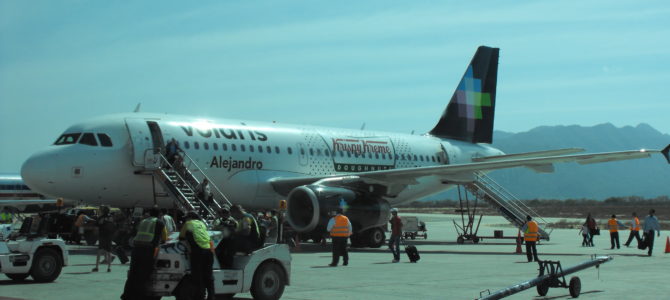The Federal Aviation Administration (FAA) is demanding U.S. airlines submit plans with updated weight averages they will use for passengers and baggage moving forward by Saturday.
According to the Wall Street Journal, “Airlines officials say the weight estimates used for passengers and baggage are going up between 5 percent and 10 percent.”
“That will affect some flights, possibly requiring that more passengers get bumped or more baggage left behind,” the Journal reported.
Airline officials say the weight requirements used for passengers and baggage are going up about 10% or more. That will affect some flights, possibly requiring that more passengers get bumped or more baggage left behind. https://t.co/bqvJkwX30U
— The Wall Street Journal (@WSJ) June 10, 2021
The new guidelines, and likely travel disruptions to come with them, are yet another symptom of American weight gain with no signs of abatement. And it’s Krispy Kreme’s fault.
Joking of course, but not really. The bizarre trend of aggressive fat-acceptance did this, and yet nobody cares despite the massive wake-up call the COVID-19 pandemic should have given us. https://t.co/SRkNOKPGie
— Tristan Justice (@JusticeTristan) June 11, 2021
While the novel coronavirus — a virus exacerbated by excessive weight where 78 percent of those hospitalized with infection were overweight or obese — should have served as a wake-up call to the decades-long obesity crisis, Americans instead packed on the pounds with apparently little concern.
According to a global Ipsos poll in January, two in five Americans reported gaining weight throughout the lockdowns still in place at the time. Those surveyed said they put on an average of more than 14 pounds, putting the U.S. seventh out of 30 countries in terms of pandemic weight gain.
Most Americans appeared relatively unbothered by the weight. Less than half said they believed there was a link between obesity and complications from COVID-19 which data determined early on was a major risk contributor.
“Since the pandemic began,” Science Magazine reported in September, “dozens of studies have reported that many of the sickest COVID-19 patients have been people with obesity.”
Overweight patients in one study published in August cited by the flagship journal were 113 percent more likely to be hospitalized with COVID-19 compared to patients of an otherwise healthy weight. Obese patients were found 74 percent more likely to end up in intensive care units (ICU) and 48 percent more likely to die. Pre-pandemic, more than 70 percent of adults 20 years old and older were already overweight with 42 percent categorically “obese” according to the CDC.
The proliferation of aggressive fat-acceptance has thrown a cultural roadblock into efforts to ignite a nationwide reckoning on weight despite the visible consequences of obesity’s toll illustrated by the coronavirus pandemic which claimed nearly 600,000 American lives.
As the pandemic in the U.S. subsides, vaccine incentives such as Krispy Kreme’s free doughnut a day for the rest of the year offered to those who present vaccine cards show Americans have learned nothing from the COVID-19 pandemic other than it’s acceptable — righteous and noble even — to place one’s personal health into their neighbors’ responsibility. While it might be sweet marketing, it feeds the cultural barriers to substantive efforts to mitigate obesity as an issue Americans need to start caring about.
The consequences of excessive weight, already applying pressure on the health care system for years as the root cause of many chronic illnesses, has now stretched beyond the confines of the doctor’s office and into the air with the FAA forced to make changes likely to spur disruption while it’s also been a legitimate national security concern for years.
Krispy Kreme didn’t demand the FAA change its safety rules. Decades of poor choices did that. The company capitalizing on the pandemic’s end, which should have opened America’s eyes to its struggle with obesity, instead highlights the cultural obstacles ahead while Americans have become apathetic to the deadly issue.









